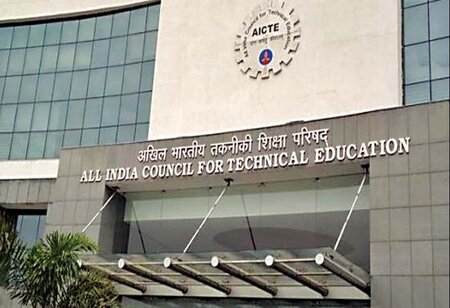AICTE Launched Higher Modules for National Initiative for Technical Teachers Training (NITTT) and Students Learning Assessment (PARAKH) Program
 With an aim to create a large pool of trained technical teachers, the All India Council for Technological Education (AICTE) announced that it was expanding the ambit of National Initiative for Technical Teachers Training (NITTT) by making it accessible to teachers with more than five years of service.
With an aim to create a large pool of trained technical teachers, the All India Council for Technological Education (AICTE) announced that it was expanding the ambit of National Initiative for Technical Teachers Training (NITTT) by making it accessible to teachers with more than five years of service.
The AICTE also announced the launch of portal https://aslap.aicte-india.org/ of Students Learning Assessment (PARAKH) program based on joint recommendations made by National Project Implementation Unit (NPIU) and STANFORD University’s study. The portal will conduct assessments of students and faculty members of HEIs and schools.
The portal has more than 1,45,000 assessment items incorporating multiple disciplines towards improving the overall competence of students and graduates to include core disciplines, aptitude, emerging areas, and higher order thinking skills. As a part of the pilot programme, more than 80,000 students registered with 55,000 completing the assessment. In addition, 1,200 faculty members have also taken the assessment.
As a part of the new revamped NITTT, teachers will now have to serve industrial training and a semester-based mentorship as a part of the training exercise. Earlier, the NITTT was accessible to teachers having less than five years of service and was launched for promoting quality of technical education in the country.
Both the programs were launched by Shri K. Sanjay Murthy, Secretary, MOE, Prof. Anil D. Sahasrabudhe, AICTE Chairman, Prof. M.P. Poonia, AICTE Vice-Chairman, and Prof. Rajive Kumar, Member Secretary, AICTE.
On the occasion Shri K. Sanjay Murthy, Secretary, Higher Education, MOE, said: “I must laud and appreciate the AICTE for launching two wonderful initiatives for teachers and students. It shows that a lot of thinking has gone into these programs and I think the students and the faculties will appreciate the benefits of undergoing these courses. We are in a virtual mode due to the pandemic and we have to ensure that students don’t feel missing live classrooms.”

